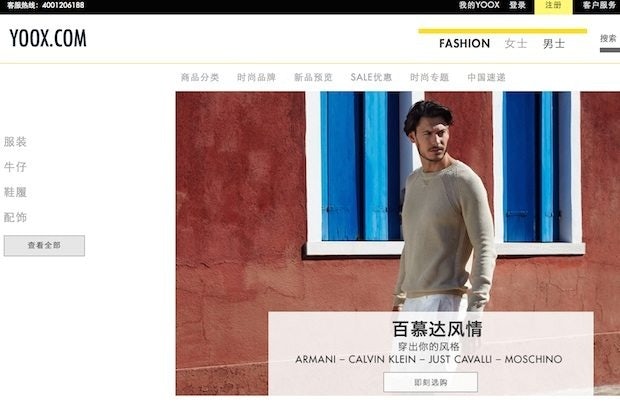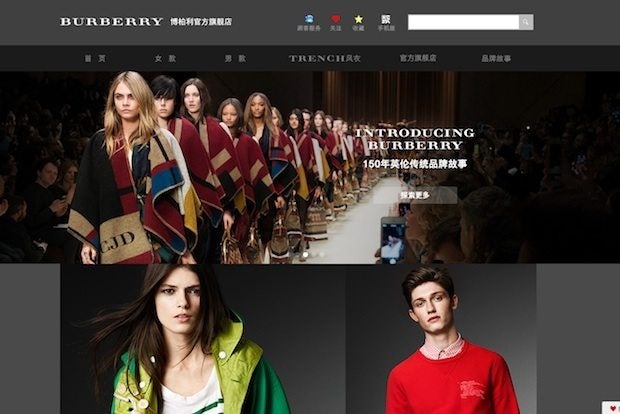
The Chinese site for online luxury boutique Yoox. (Yoox)
There’s no question that e-commerce is booming in China: the country is expected to overtake the United States as the world’s largest e-market this year in absolute USD value. Many luxury brands, however, have been slow to jump on the e-commerce bandwagon, despite the fact that more than 50 percent of Chinese internet users shop online and online sales are expected to comprise 9 percent of total Chinese consumption in 2014. Some companies are concerned that e-commerce may dilute a brand’s high-end image, but a new paper on luxury e-commerce in China by Exane BNP Paribas called "China Reality Check: Luxury and the Online Boom" argues that this assumption needs to be set aside. “European and American luxury players have no time to waste in the Chinese online market,” it states, citing several key reasons that online sales are the way to go for luxury brands.
China’s luxury consumers have already embraced digital#
The paper finds that although America’s online luxury market is more developed than China’s, luxury consumers in Shanghai are far more likely to do online research than those in New York. For example, 66 percent of Shanghai consumers seek information on a luxury brand’s website before purchase, compared to only 52 percent of New Yorkers, and 58 percent of Shanghai residents consult online reviews compared to only 42 percent of New York consumers. These trends point to untapped potential in China’s online luxury market.
China’s e-shoppers aren’t just looking for discounts#
Even though it’s more than clear that e-commerce is the way of the future in China’s consumer market, one main reason high-end brands are wary about entering the online sphere is the worry that shopping online can’t be a “luxurious” experience. As a result, some companies don’t offer e-commerce in any country with the belief that the in-store atmosphere is a key factor in conveying the brand's identity. This is big mistake for China, according to the report, which points out that China not only has a consumer base that is generally “younger and more willing to embrace new distribution channels and practices,” but it is also a massive country, with wealthy consumers in lower-tier cities who may not have convenient access to a brick-and-mortar store.

Burberry's shop on Alibaba's B2C e-commerce platform Tmall. (Tmall)
E-tailers are cracking down on fakes#
According to the paper, the number one concern among China’s online luxury consumers is a fear of fakes—especially on Alibaba’s e-tail sites Tmall and Taobao. Since its announcement of its U.S. IPO plans, however, Alibaba has been making a concerted effort to court foreign luxury brands—and one major way it’s doing that is fighting fakes. According to research by L2 Think Tank, Burberry learned that the way to guarantee support from Alibaba is to open up a Tmall account. The research firm found that since Burberry became one of the first international luxury brands to launch a Tmall shop, Alibaba has removed all Burberry fakes from the e-tail platform. This indicates that the benefits may outweigh the risks for brands considering opening up shop on Tmall or other online platforms such as Jingdong.